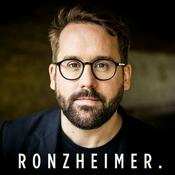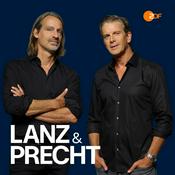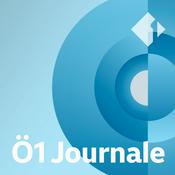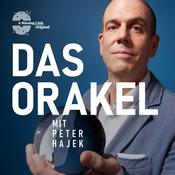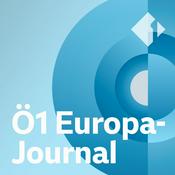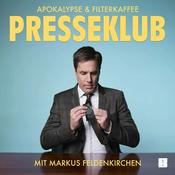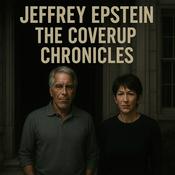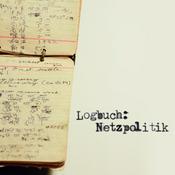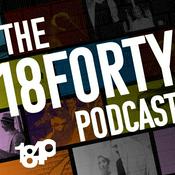67 Episoden
- A lifelong seeker of truth, Dr. Chava Green has always been drawn to exploring the complexities of the world. As a college student she explored different areas of thought, eventually learning more about Judaism and strengthening her Jewish identity. In turn, Chava's journey guided her to the rich tradition of Jewish mysticism.
Chava Green is the founder of The Hasidic Feminist Platform. She completed her PhD in religion at Emory University, writing her dissertation on Hasidic feminism. Chava is currently working on a book entitled The Geulah is Female.
Now, she joins us to answer eighteen questions on Jewish mysticism with Rabbi Dr. Benji Levy including the role of women in the Messianic Era and how we can see God in the everyday.
Here are our questions:
What is Jewish mysticism?
How were you introduced to Jewish mysticism?
In an ideal world, would all Jews be mystics?
What do you think of when you think of God?
What is the purpose of the Jewish people?
How does prayer work?
What is the goal of Torah study?
Does Jewish mysticism view men and women the same?
Should Judaism be hard or easy?
Why did God create the world?
Can humans do something that is against God’s will?
What do you think of when you think about Moshiach?
Is the State of Israel part of the final redemption?
What is the greatest challenge facing the world today?
How has modernity changed Jewish mysticism?
What differentiates Jewish mysticism from the mysticism of other religions?
Does one need to be religious to study Jewish mysticism?
Can mysticism be dangerous? How has Jewish mysticism affected your relationships with yourself and with others?
What is a Jewish teaching that you always take with you? - Rabbi Shais Taub’s study of mysticism began with a deep dive into the book of Tanya. Now, he believes that mysticism serves as a practical guide for everyday life, one founded in spiritual principles.
Rabbi Shais Taub is a renowned teacher and noted speaker in the field of addiction recovery. He is the author of God of Our Understanding: Jewish Spirituality and Recovery from Addiction and the creator of “The Map of Tanya.”
Now, he joins us to answer eighteen questions with Rabbi Dr. Benji Levy on Jewish mysticism including how it can revive the Jewish People, the perfectibility of the physical world, and seeing children as souls.
Here are our questions:
What is Jewish mysticism?
How were you introduced to Jewish mysticism?
In an ideal world, would all Jews be mystics?
What do you think of when you think of God?
What is the purpose of the Jewish people?
How does prayer work?
What is the goal of Torah study?
Does Jewish mysticism view men and women the same?
Should Judaism be hard or easy?
Why did God create the world?
Can humans do something that is against God’s will?
What do you think of when you think about Moshiach?
Is the State of Israel part of the final redemption?
What is the greatest challenge facing the world today?
How has modernity changed Jewish mysticism?
What differentiates Jewish mysticism from the mysticism of other religions?
Does one need to be religious to study Jewish mysticism?
Can mysticism be dangerous?
How has Jewish mysticism affected your relationships with yourself and with others?
What is a Jewish teaching that you always take with you? David Bashevkin: ‘We are meant to teach the world how to embrace unchosen identity’
26.1.2026 | 1 Std. 28 Min.What does it mean to live a Judaism that fits into our lives? David Bashevkin explores the meeting point of mysticism and modernity.
The founder of 18Forty, Rabbi Dr. David Bashevkin is the director of education at NCSY as well as an instructor at Yeshiva University. He is the author of four books, and has been rejected from many prestigious fellowships and awards.
Now, he joins us to answer eighteen questions with Rabbi Dr. Benji Levy on Jewish mysticism including how to embrace holiness, the purpose of prayer, and the search for meaning in an age of distraction.
Here are our questions:
What is Jewish mysticism?
How were you introduced to Jewish mysticism?
In an ideal world, would all Jews be mystics?
What do you think of when you think of God?
What is the purpose of the Jewish people?
How does prayer work?
What is the goal of Torah study?
Does Jewish mysticism view men and women the same?
Should Judaism be hard or easy?
Why did God create the world?
Can humans do something that is against God’s will?
What do you think of when you think about Moshiach?
Is the State of Israel part of the final redemption?
What is the greatest challenge facing the world today?
How has modernity changed Jewish mysticism?
What differentiates Jewish mysticism from the mysticism of other religions?
Does one need to be religious to study Jewish mysticism?
Can mysticism be dangerous?
How has Jewish mysticism affected your relationships with yourself and with others?
What is a Jewish teaching that you always take with you?- Whether through the lens of Tanach or Maimonides, Rabbi Kook or the Zohar, Rabbanit Shani Taragin believes that the layers of the Torah form a unified language of divine intimacy.
Shani directs and teaches in Israel and worldwide. She currently serves on the advisory committee for the Mizrachi Olami Shalhevet program, as Rosh Beit Midrash for the women in Yeshiva University’s new academic program in Israel, and together with her husband, Reuven, as Educational Director for Mizrachi Olami.
Today, she joins us to answer eighteen questions on Jewish mysticism with Rabbi Dr. Benji Levy including teshuva and free will, the significance of the State of Israel, and prayer as both worship and catharsis.
Here are our questions:
What is Jewish mysticism?
How were you introduced to Jewish mysticism?
In an ideal world, would all Jews be mystics?
What do you think of when you think of God?
What is the purpose of the Jewish people?
How does prayer work?
What is the goal of Torah study?
Does Jewish mysticism view men and women the same?
Should Judaism be hard or easy?
Why did God create the world?
Can humans do something that is against God’s will?
What do you think of when you think about Moshiach?
Is the State of Israel part of the final redemption?
What is the greatest challenge facing the world today?
How has modernity changed Jewish mysticism?
What differentiates Jewish mysticism from the mysticism of other religions?
Does one need to be religious to study Jewish mysticism?
Can mysticism be dangerous?
How has Jewish mysticism affected your relationships with yourself and with others?
What is a Jewish teaching that you always take with you? - Rabbi Moshe Gersht first encountered the world of Chassidus at the age of twenty, the beginning of what he terms his “spiritual awakening.” From there, he began to dive deep into Jewish mysticism, viewing it as a unified system that shows that there is meaning to reality.
Rabbi Moshe Gersht grew up in Los Angeles and now lives in Ramat Beit Shemesh. He is the author of It’s All The Same To Me and The Three Conditions. He is also a popular speaker and spiritual teacher.
Now, he joins us to answer eighteen questions on Jewish mysticism with Rabbi Dr. Benji Levy including living with free will in the moment and the Messianic Age as an awakening of consciousness.
Here are our questions:
What is Jewish mysticism?
How were you introduced to Jewish mysticism?
In an ideal world, would all Jews be mystics?
What do you think of when you think of God?
What is the purpose of the Jewish people?
How does prayer work?
What is the goal of Torah study?
Does Jewish mysticism view men and women the same?
Should Judaism be hard or easy?
Why did God create the world?
Can humans do something that is against God’s will?
What do you think of when you think about Moshiach?
Is the State of Israel part of the final redemption?
What is the greatest challenge facing the world today?
How has modernity changed Jewish mysticism?
What differentiates Jewish mysticism from the mysticism of other religions?
Does one need to be religious to study Jewish mysticism?
Can mysticism be dangerous?
How has Jewish mysticism affected your relationships with yourself and with others?
What is a Jewish teaching that you always take with you?
Weitere Nachrichten Podcasts
Trending Nachrichten Podcasts
Über 18 Questions, 40 Mystics
18 Questions, 40 Mystics is a new podcast and video series by 18Forty and Share interviewing the leading rabbis, teachers, kabbalists, and artists immersed in the world of Jewish mysticism. Join Rabbi Benji Levy as he asks 18 of the most existential questions to 40 mystics from around the world. If you are looking to dive into the world of spirituality, inspiration, and pnimiyut, then this is the podcast for you.Have questions or comments? Shoot us an email at [email protected].
Podcast-WebsiteHöre 18 Questions, 40 Mystics, Inside Austria und viele andere Podcasts aus aller Welt mit der radio.at-App
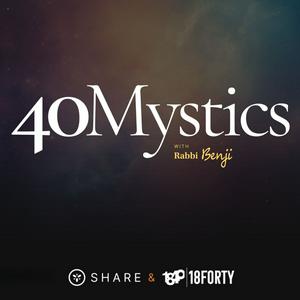
Hol dir die kostenlose radio.at App
- Sender und Podcasts favorisieren
- Streamen via Wifi oder Bluetooth
- Unterstützt Carplay & Android Auto
- viele weitere App Funktionen
Hol dir die kostenlose radio.at App
- Sender und Podcasts favorisieren
- Streamen via Wifi oder Bluetooth
- Unterstützt Carplay & Android Auto
- viele weitere App Funktionen


18 Questions, 40 Mystics
Code scannen,
App laden,
loshören.
App laden,
loshören.



